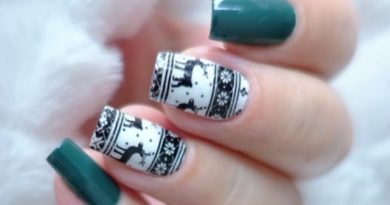Car Pokes
By Terry Groves
They flashed past me, and my first instinct was to tromp the gas pedal and catch up to them. Then common sense kicked in, and I relaxed my grip on the steering wheel. When I saw the rope lasso dangling from the second bike, I was glad for my innate fear. No one messed with the car pokes.
They rode fast into the mass of morning rush hour traffic, heedless of the horns that blared in their wake or the raised fists and fingers of commuters. Their cool-man sunglasses flashed beneath low-rider helmets.
With precision and purpose, they cut a path into the herd of automations crowded onto the asphalt macadam. They must use some sort of radios, because their movements were coordinated, calculated, and immediate: a ballet of steel, carbon composite, and rubber. I had the vantage of height, heading down the ramp to join the molasses-paced stampede on the highway, and couldn’t help but admire their choreography, their bikes poking at the herd of traffic.
I had never seen these outlaw bandits in person but had often heard about their exploits while sitting around the blazing TV in the evening. Legend made them twenty feet long, able to ride through standing traffic at one hundred miles per hour and never bend a pedal. Seeing them at work, I realized the legends weren’t far from what I was witnessing. Their steeds had been exaggerated and, even though they rode the latest composite material bikes, their speed was well below rumor; but their derailleurs were still just a blur.
I had barely moved five meters from where they passed me, but they were already a half kilometer ahead. Cars parted to let them pass as though the drivers actually looked in their rear views and saw them coming, imagine. Each car pulled to one side and then darted back into the safety of the herd once the bikes passed.
I spotted their target, the sick one, practically lame, one tire almost flat. Then it noticed the pokes closing in. The little blue car jittered back and forth in its lane as though unable to decide which way to jink. Then it made a fatal mistake and fled to the shoulder, sputtering as it kicked up gravel.
The pokes cut between the car and the rest of the near-gridlocked stampede, forcing it further to the right. Their tires almost touching, a train of six bikes. The lead rider inched a bit to the right, widening the gap between the blue car and the herd.
I knew what the blue car was going to do next. It cut hard to the right, into the grass, and picked up speed. Stupid, stupid, stupid. That’s what they want you to do.
The lasso the second rider carried began to rotate over his head. A steady hand revolved the lariat, carving widening arcs as the lasso loop grew larger. It was obvious; the rope man was biding his time, enjoying the game.
I had come to a stop, only three-quarters down the ramp. Everyone paused to watch the show rather than get away before the pokes could turn on them. People are such cattle. Then I began to wonder if the pokes had noticed me, seen my initial reaction as a sign of weakness. Did they think I was a bit lame?
I couldn’t pull my eyes from the scene, but I heard a siren somewhere behind me. Someone must have called 9-1-1. I hoped they had Bluetooth; managing a hand held phone while driving was dangerous, illegal, and just plain stupid. I hoped the pokes didn’t think it was me who had called. The siren was still far away. That driver obviously didn’t have the same road skill as the pokes.
The little blue car began to spin in the grass, its wheels throwing up wads of earth and green. It slowed as it cut hard, turning a half circle. The rope bike drifted away from the others, edging back and in, waiting for its moment. The hand spinning the rope was a blur.
Then, a sharp flick of the wrist, casual as flicking a cigarette butt, and the lariat arced, formed a perfect “O,” and settled around the back of the spinning car.
When the rope snapped tight, I could feel it press deep into the man’s skin where it wound around his forearm as though it was me holding the cord. He was too far away for me to see this, but I knew it was happening because the front of his bike bit hard into the shoulder; at the same time, two other bikes swerved, cutting sharp to the right. They faced me. Pupils hidden behind sunglasses, I couldn’t tell where they were looking. I averted my gaze and resigned myself to quick glances to remain apprised of the developing scene.
The blue car surged to the left, but that escape route had already been cut off by two riders. Another practiced snap of the rope man’s arm, and the car tipped onto its side. The cowpoke jumped from his steed and flicked the rope twice with a grand, confident motion, looping the rope around all four tires. With a final, solid tug of the rope, the tires ceased spinning. The blue car lay quiet, on its side. Its exhaust stirred the grass and dust in puffs.
The second poke skidded to a stop about six feet away, and the rider jumped off his steed before the dust could settle. Another poke carried a long steel bar. I knew what was coming next. I didn’t know if I could watch, but I did. The lead poke circled, standing guard over the dismounted car pokes and their quarry.
Was he looking at me? I looked the other way, watching them from the corner of my eyes.
Another rider unholstered an orange cordless drill. He sprinted to the rear of the roped car and drilled two holes in the trunk lid. I saw other drivers watching this. Some squinted and turned away, two vomited out their windows, some simply gaped at the scene, drool leaking down their chins. You find all kinds on the highways. My stomach threatened a re-taste of my breakfast, but a few deep breaths through my nose settled it.
The man with the long bar attached something to the end then pressed it against the trunk lid where the holes had been drilled. The roped car bucked, its wheels tried to kick free, but the roper was an expert and didn’t give any slack. The bar man pressed harder then pulled the steel away. He and the drill man stepped back, admiring their work. They nodded at the rope man then trotted toward their bikes and picked them up from the dirt.
Two sidearm flicks and the rope unwound from the tires. Another looping flick and the lariat fell away. The blue car continued to lay there for a moment as though unable to believe it was free. Then the tires began to spin, and it righted itself. It stood vibrating, taking stock. In that moment, its rear end pointed in my direction, I saw the trunk lid, where it had been assaulted. A silver flash showed the brand had four letters but only the first one, an F, was large enough for me to read from where I was.
The newly branded car made its way back to the paved surface of the road and was soon absorbed into the mass of the herd heading into the city. The pokes had already threaded themselves into the steel stream of traffic and snaked their way around the next curve.
I was just nosing onto the highway itself when the siren car pulled up. The sheriff had arrived.
Terry Groves has been writing for most of his life and has enjoyed success with both short stories and poetry, but his first love has always been the stories. Strongly influenced by Stephen King and Edgar Allan Poe, his typical genres are dark drama, humor and pure horror but he also enjoys the occasional foray into other areas as well. He is currently working on a novel as well as more stories.
Terry has had opportunity to travel to many parts of the world but his favorite is Canada. After a career serving his country he went back to school and presently works in the IT field. He lives in Duncan, British Columbia where he spends weekends practicing for retirement, when he plans on writing full-time. He writes for the love of the craft.
You can find him online at www.terrygroves.com and on Facebook.
Featured image via Adriano Bonfim, Pixabay




